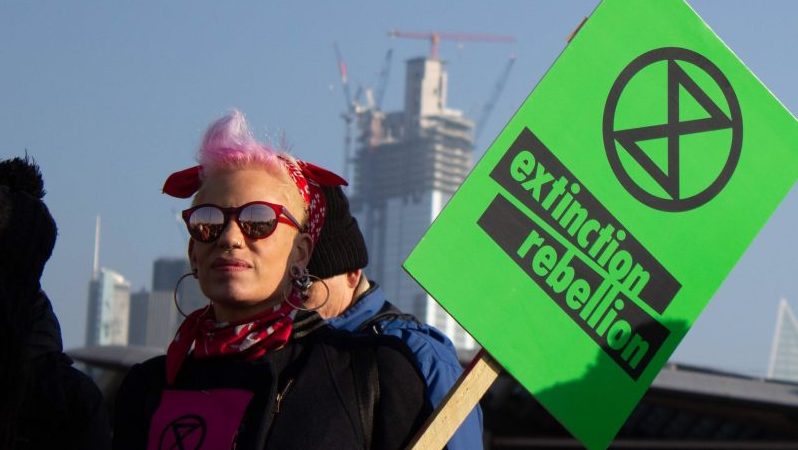A world-leading climate action plan or a betrayal of future generations? The UK’s net zero emissions plan certainly sorted the technocrats from the activists.
In a 277-page report, the Committee on Climate Change set out how Britain could stop changing the climate by 2050, calling for legislation to make it happen.
It is a level of ambition that would have stretched credibility five years ago. This week, it landed on fertile ground, softened up by technological advances and social momentum. Even the rightwing press was relatively receptive.
Indeed, the strongest criticism of the report came from Extinction Rebellion. Riding high after parliament declared a “climate emergency“, one of its key asks, the activist movement asked whether the 1-2% of GDP cost estimate – there to reassure middle Britain – was commensurate with the scale of the challenge.
Of course, endorsing higher ambition in principle is one thing. Applying it to tough policy and investment decisions like expanding Heathrow Airport or opening a new coal mine (decisions backed by both major parties) is another. The UK has a projected shortfall against existing emissions targets from the mid-2020s.
On an international level, together with similar plans under development in France, it is a shot in the arm for the Paris Agreement. As Britain bids to host key UN climate talks in 2020, it signals a seriousness about ratcheting up ambition over time.
The advice of @theCCCuk to the UK government is a betrayal of current & future generations made all the more shocking coming just hours after UK MPs passed a motion to declare an environment & climate emergency. #RebelForLife: https://t.co/PzxBohj9iuhttps://t.co/gD6pQW2ux8
— Extinction Rebellion ⌛️ (@ExtinctionR) May 2, 2019
Democrat fightback
As the US 2020 election cycle gets underway, Democrats laid down a marker of their intent to revive climate action.
The house of representatives passed a bill prohibiting the use of federal funds to quit the Paris Agreement and demanding the administration meet the US’ Obama-era climate pledge.
While it stands zero chance of getting through the senate or White House (and how much can it cost to write a letter to the UN?), the bill signals the party’s commitment to international cooperation.
Spain’s GND
In Spain, the centre-left socialist party increased its vote share on a “green new deal” platform.
While the party still falls short of a majority in parliament, the election result gives it a strong mandate to pursue climate policies in a governing coalition.
Remarkably, it even gained ground in coal mining regions, on proposals to support retraining and retirement for workers in the transition to cleaner energy.
Electric freeways
Los Angeles, that famously sprawling city, is aiming to eradicate petrol and diesel cars by 2050, under a package released by the mayor.
It will expand the limited public transport system, make the streets more pedestrian-friendly and encourage car-sharing, as well as installing charging infrastructure for electric cars.
Brown belt
Lest we get carried away, it is worth noting that China continues to invest in coal projects abroad, which threaten to blow the global carbon budget.
Several coal deals emerged from its belt and road summit, including major power plants in Pakistan, Indonesia, Vietnam and Turkey. While it is too early to discern a trend, it showed several partner countries are still favouring coal over renewables investment.
Pakistan’s prime minister Imran Khan preferred to talk about tree-planting in his speech, but one of his advisers attended the signing ceremony for a 700MW coal plant.
